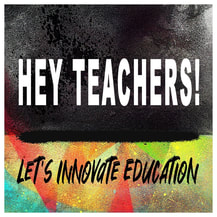|
While researching the creative process, I’ve consistently encountered the idea of a curious mind. Scientists refer to curiosity as a source of learning, a key component of mindfulness, and a precursor to innovation. At its core, curiosity is about an open eagerness to learn something. It’s like a conversation with a caring friend whose only interest is to see you grow through a dialogue of thoughtful reflection. Curiosity brings about a state of awe as we stare into the universe of knowledge and confront novel subjects. It motivates us to want to learn more. Curiosity is the soil of learning because it puts us in the mental state required to be open to the world, to build relevance in the content, and to take chances. It encourages the desire to master something and the passion to do it in the service of something larger than ourselves. A curious mind also allows space to learn from our failures and mistakes. This didn’t work. Why? What might work instead? By arming our attitudes with curiosity, we’re able to embrace a growth mindset and truly appreciate criticism. Creativity is part of a feedback loop that allows us to let go of our ego in the name of progress for everyone, growing from that soil of curiosity. Dr. Shauna Shapiro writes, “By remaining open to experiences, we are more likely to make connections between seemingly unrelated concepts, which is crucial to generating original ideas.” Having teachers collaborate--especially across departments and subject matter--is a great way to help students think outside the box. How do math and painting work together? History and writing? Biology and music? Collaborating within the classroom is useful, too. We need to utilize other people’s perspectives in order to see ourselves more clearly, more completely. It helps us to see beyond our own biases. “The most beautiful experience we can have is the mysterious. It is the fundamental emotion that stands at the cradle of true art and true science. Whoever does not know it and can no longer wonder, no longer marvel, is as good as dead, and his eyes are dimmed.” Everyone knows that Einstein failed at school, but few know why. The fact is, he couldn’t handle the factory approach to learning. He eventually fled that traditional system and ended up in a progressive Swiss school that he said nurtured his curiosity, a key component in his success. As he famously said, “I have no special talent. I am only passionately curious.”
0 Comments
Leave a Reply. |
Archives
July 2020
Categories
All
|

 RSS Feed
RSS Feed
